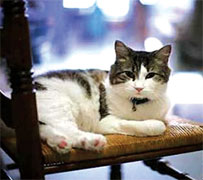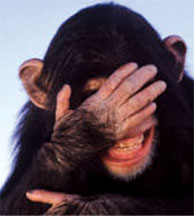|

North Carolina family wins lottery thrice
 It can be once in a life time that luck smiles on someone. It can be once in a life time that luck smiles on someone.
But can you believe luck came their way three times.Most people only
dream of winning the lottery, but a North Carolina mother and daughter
not only beat the odds -- they did it three times. Kimberly McCauley of
Charlotte, N.C., won $100,000 in North Carolina's new scratcher game
called “10X the Money,” last week.
McCauley said she never imagined she'd win anything. After all, her
mother Amy McCauley is a two-time lottery winner.
“I figured my mom was hogging all the luck. This is so overwhelming,
but it's a good kind of overwhelming,” Kimberly told lottery officials.
The elder McCauley won $15.5 million in the New York State Lottery in
1991 and just collected her final 20 year annuity cheque.Her lucky
streak continued four years ago, when she won $161,172 in the North
Carolina Education Lottery by matching all five numbers to her ticket.
Since then, she has gone on to collect two $1,000 prizes from the
state's lottery and even appeared in an episode of The Oprah Winfrey
Show discussing her windfall.
Kimberly brought her mom - by now a seasoned veteran - with her to
the North Carolina Education Lottery's office in Raleigh last Monday to
claim her prize. Ryan Kennemur,a spokesperson for the North Carolina
Education Lottery, said the two seemed calm. “Once you win the lottery
twice, what's a third time?” he asked. Kimberly, whose winnings are
worth $68,001 after taxes, said she plans to spend the money to pay off
her student loans and purchase a Mini Cooper. This isn't the first time
lightning has struck twice for a North Carolina resident. Michael Mabe
of Belews Creek, N.C., collected his second $100,000 prize in May 2011.
He won his first in December 2010.
“Winning one time is awesome. It's a once in a lifetime thing,” Mabe
told lottery officials. “But winning twice is something special. I'm
very grateful.
Is this cat the messenger of death?
His walk is slow and silent but with a frightening look on his cold
face.He walks by the bed of the patient and everyone in the room knows
what his visit means.
|

Oscar, the supposed death-predicting cat. |
Is he the messenger of death?
This strange happening is a frequent occurrence at the Rhode Island’s
Steere House Nursing and Rehabilitation Centre - Not because Oscar isn't
friendly - by all accounts he is - but because according to a doctor who
works there, David Dosa, Oscar has the mysterious power to predict who's
going to die.
He is said to wander about the building, stopping to see patients who
only have a short time to live - in some cases surprising the staff with
the predictions. The cat is credited with correctly predicting at least
50 deaths at the nursing home over the past five years.
Oscar first rose to prominence in 2007 when Dosa wrote a piece in the
prestigious New England Journal of Medicine about the cat, and later in
a popular 2010 book titled Making the Rounds with Oscar: The
Extraordinary Gift of an Ordinary Cat.
What might explain Oscar's strange powers?
There are a few things to note about the story. First, though Dosa's
piece about Oscar in The New England Journal of Medicine is sometimes
described as a “study,” it was nothing of the sort.
No scientific experiments or medical research was conducted on the
feline's alleged death-detecting abilities; the piece was instead a
personal essay.
There's nothing wrong with essays, but they are essentially stories
and anecdotes, which don't necessarily carry any scientific or
evidential weight.
In an analysis of Dosa's book about Oscar published in Skeptical
Inquirer magazine, researcher Joe Nickell found a troubling lack of
scientific rigor surrounding the cat's surprising abilities:
Dosa's evidence is the kind disparaged in science as anecdotal. That
is, it is based on personal narratives that may be affected by mistaken
perceptions, faulty memory, folkloric influences, and many other
faults.... Biased selection is a very real problem: there is a natural
tendency for believers in some phenomenon to collect stories supporting
it, just as there is for disbelievers to collect stories discrediting
it. And because Dosa admits to making up some events and creating
fictional characters in his book, Nickell concludes.
“There is no point in trying to evaluate the anecdotal evidence: it
has been manipulated - in the interest of telling a good story, of
course -- so it is scientifically worthless.” So there's some question
about how reliable the data behind Oscar's legend really is: Was Oscar
there at the moment of death, or within a few minutes, or a few hours?
Was he there for all deaths, or just some of them? Did he meow at the
bedside alerting nurses, or did he just wander by the room at some point
earlier?
We have no hard data on these questions. But assuming that Oscar
really does visit imminently terminal patients more often than others,
there may be scientific explanations.
It's possible that Oscar may simply be responding to nurses and staff
activity related to the patient's condition.
For example, patients who are near death are likely to have more
activity in their rooms (for the obvious reason that nurses pay extra
attention to those in danger of dying than they do to medically stable
patients). Oscar may visit those beds more often simply because there’s
more going on there, or the patients seem especially unwell.
The story of Oscar the death-detecting cat is an interesting,
lighthearted story, but falls short of being scientifically
unexplainable. However that interpretation is more comforting than
another explanation: that the lovable Oscar is really a feline serial
killer, bringing death wherever he goes.
Do we descend from apes?
|

Humans express laughter similarly to other primates through a
series of rapid exhalation-inhalation cycles. |
Have you seen a man falling flat after tripping on banana peel? What
was your reaction or response? A giggle maybe, and later on you will try
to hide it and try to help him.
Tripping on a banana peel is the oldest sight gag in the book, but it
can be enough to get apes giggling.Charles Darwin proves right! We
descend from apes because we react same way as them.
According to new research on laughter non-human primates may enjoy
watching someone else trip on a banana peel, which found that apes might
appreciate slapstick humour. Robin Dunbar, who co-authored one such
study with Guillaume Dezecache, described what non-human primates might
be amused by. “The use of language-based jokes is clearly unique to
humans,” Dunbar, a professor of evolutionary psychology at the
University of Oxford, told. “There is some suggestion that apes ‘play
practical jokes’ or laugh at another's misfortune, such as the banana
skin situation, but these are only casual observations.”
“Human laughter derives from the play invitation vocalisations of Old
World monkeys and apes, but this is normally confined to juveniles and
adolescents; adults don't play,” he said. “In apes, this is identifiably
rather closer to human laughter,” Dunbar explained, “and bonobos in
particular use laughter a lot in play contexts, even among adults. What
seems to have happened is that humans have taken these monkey/ape play
vocalisations and tweaked them and increased the frequency of their
use.” |


